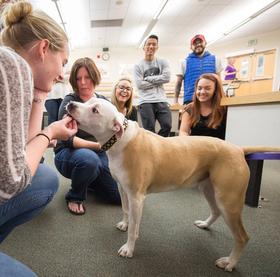Step into the alluring world of community college training programs that pave the way to lucrative careers in the casino industry. In this captivating article, we explore how aspiring professionals are seizing the opportunity to gain specialized knowledge and practical skills needed for success in one of the most dynamic and thrilling industries. Uncover the diverse range of casino-related programs offered at community colleges, from casino management and hospitality to gaming technology and entertainment. Delve into the immersive learning experiences, state-of-the-art facilities, and expert faculty that ensure students are well-prepared to enter the glamorous realm of casinos. Join us on a journey of discovery as we unveil the secrets to securing a winning hand in the casino industry through top-notch community college training.
Casino jobs are expected to grow at an above-average pace over the next few years, which could translate into relatively stable career options. Fortunately, some community colleges are rising to the challenge, creating new training programs designed with casino dealers in mind. The training individuals receive from community colleges helps them land lucrative careers in the gaming industry, where tips and base salaries can provide a comfortable living.
The Life of a Casino Dealer
According to career information on StateUniversity.com, casino dealers:
- Explain and enforce the rules and wagering guidelines for games
- Ask patrons to place their bets
- Conduct the games
- Make payoffs to the winners
- Collect losing bets
This job involves plenty of diversity since most casino dealers fluctuate between games like blackjack, craps, roulette, and baccarat during a single shift. The more games with which you, the better your job-hiring prospects are likely to be.
The U.S. Bureau of Labor Statistics also states that casino dealers are responsible for monitoring the games for potential infractions. Dealers must have above-average customer service skills and a head for numbers. Math tests are often given to individuals applying for jobs as casino dealers to ensure they can handle this aspect of the job efficiently and accurately. Dealers must also receive licensure in the state they will be working, which usually requires proof of identity and residency.
This video offers suggestions why working in a casino as a dealer is an exceptional job.
What is the Job Outlook?
The BLS estimates that jobs for casino dealers and other casino-related occupations will grow at a faster-than-average pace over the next few years. However, competition for available positions may be fierce, which is why formal training in the industry will give you the necessary edge to land your first job quickly. The BLS states that casino dealers' average annual base salary is just over $16,000, but that number doesn't include tips.
An article in the Scranton Times Tribune estimates the true annual salary of a dealer to range from $35,000 to $40,000 a year. This article also states that the launch of gaming tables in Delaware, Ohio, and Pennsylvania could create as many as 7,000 dealer jobs over the next two years, according to CEO of Worldwide Gaming Consultants Joseph Cardinale. Cardinale originally suggested the idea of adding casino dealer training to community college course offerings at Luzerne County Community College.
This video offers a look at some of the other jobs available in casinos.
Where to Find Training
The introduction of table games at casinos in Pennsylvania has prompted Luzerne County Community College to offer casino dealer training to prepare qualified employees for the growing industry. The month-long training program costs $875 and prepares students to run both poker and blackjack tables. Joe Marco, a blackjack dealer instructor at the school, told the Scranton Times Tribune, "Casinos are about the only industry flourishing, instead of closing." This makes for plenty of job opportunities for Pennsylvania residents looking for a steady paycheck.
Northampton Community College is another Pennsylvania school preparing students to seize the opportunities opening up as casinos open their doors. According to the Pocono Record, Northampton is rapidly graduating dealers looking to land jobs at the nearby Mount Airy casino. Mount Airy trainers were hired to teach the Northampton classes, allowing them to train potential employees in the specific games they offer. The majority of students were expected to be hired right away by Mount Airy, with the rest planning for employment once they had a bit more dealing practice under their belts.
Bucks Community College, also in Pennsylvania, is offering casino dealer training that requires students to pass a math test prior to admission and obtain CPR/AED certification at the same time. Some casinos require their dealers to be CPR certified upon hiring. According to the college website, the training includes craps, blackjack/carnival games, roulette, and poker, with baccarat being introduced a month later. Courses for each game are offered separately, with separate tuition pricing for each. Some courses must be completed before others can be taken.
Casino dealers work in an action-packed environment with a wide range of customers. This job can sometimes be physically demanding since some dealers must stand for prolonged periods. However, good dealers are well-compensated for their efforts, with some earning as much as $200 to $300 a day in tips alone. If you enjoy working with people, have a good head for numbers, and revel in a fast-paced casino environment, perhaps the job of a casino dealer is the right choice for you.
Questions? Contact us on Facebook. @communitycollegereview















